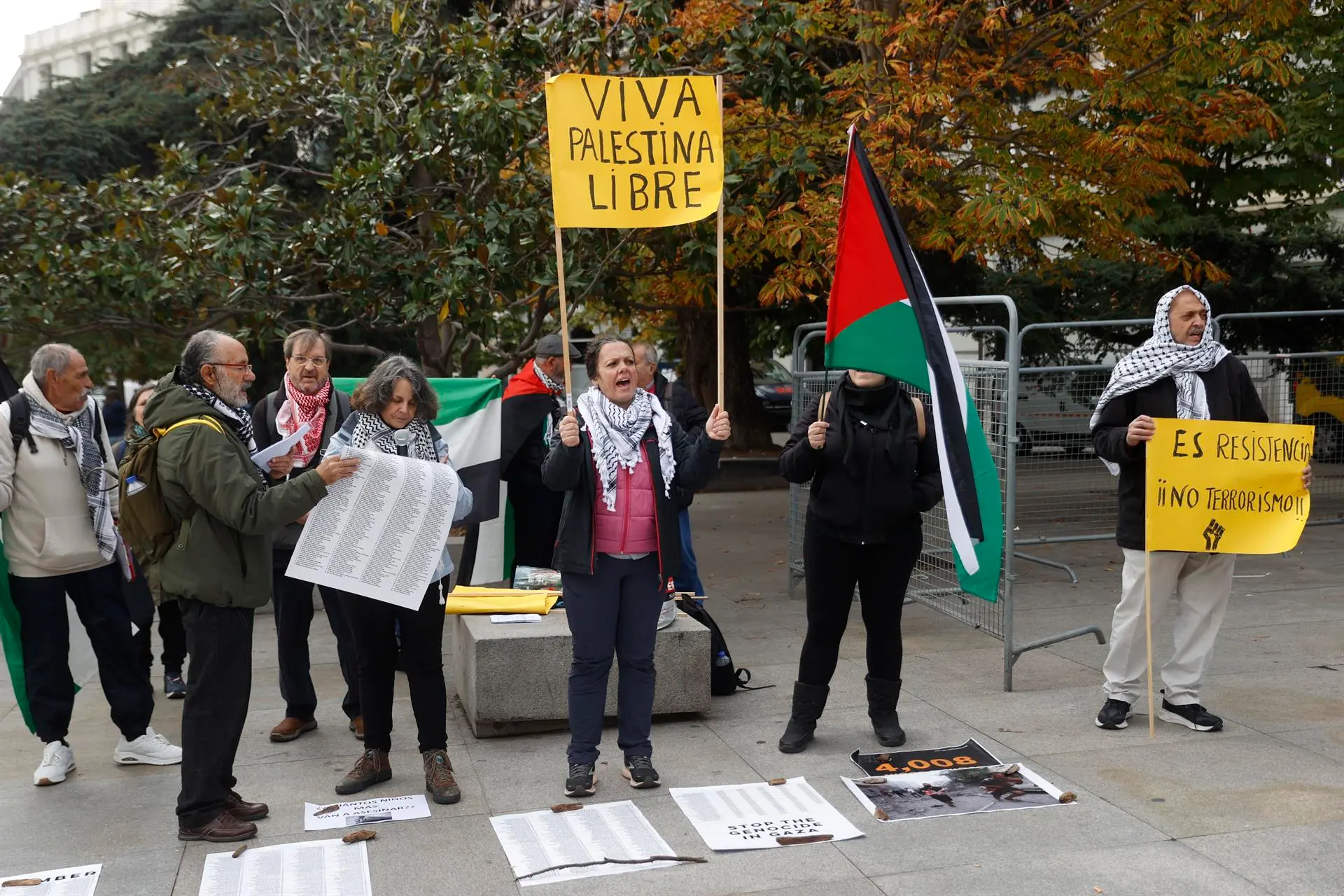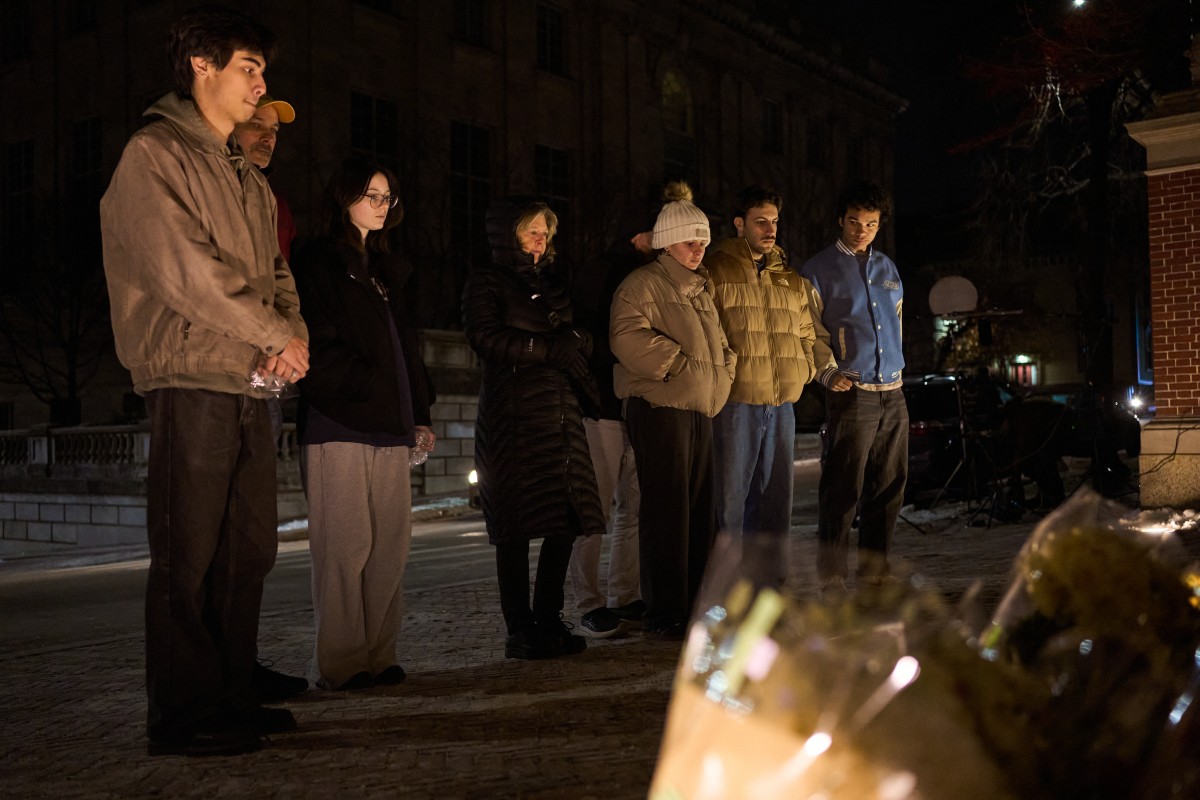International
Israel reproaches in a video in X Spain’s policy of recognizing the Palestinian State

Israel again reproached Spain’s policy with the recognition of the Palestinian State, with a video published this Sunday on the account of X of the Israeli Foreign Minister, Israel Katz, accompanied by a mention of the President of the Spanish Government, Pedro Sánchez, and then the message “Hamás thanks him for his service.”
In the video, which lasts 18 seconds, it starts with the flag of Spain and some of the images of the attacks of the Palestinian group on October 7 appear, alternating with those of two people who imitate flamenco dancers, all the time with the phrase printed on “Hamás: “Thanks Spain.”
In the last few hours, numerous X accounts are distributing recordings without filters or warnings of the crudest moments of the October 7 massacre.
The circulation of these videos has intensified following the announcement by Spain, Norway and Ireland of their decision to recognize the Palestinian state on May 28.
With his message today, Katz again charges against the Spanish Government after its recent announcement that it will recognize the Palestinian State, after last Friday it banned the Spanish Consulate in Jerusalem to “provide services to the Palestinians” and ordered the connection between the Spanish Embassy in Tel Aviv and the Palestinians to be cut off.
Katz also criticized on Friday the vice president of Spain, Yolanda Díaz, for publishing the day after the announcement of the recognition of the Palestinian State a video on her social networks of support in which she stated “Palestine will be free from the river to the sea,” a slogan of the Palestinian cause that Israel considers anti-Semitic because they say that it implies the disappearance of its state.
“If this ignorant and hateful person wants to understand what radical Islam is really looking for, let him learn about the 700 years of Islamic rule in Al Andalus, in what is now Spain,” Katz wrote in a message on his X account this past Friday against Díaz.
The Spanish Minister of Foreign Affairs, José Manuel Albares, considered “scandalous and execrable” the video published today by his Israeli counterpart in which he reproaches Spain for its imminent recognition of the Palestinian State and uses flamenco in a “huring” way.
“The video seems scandalous and execrable to me. It is scandalous because it is known to the whole world, especially to my Israeli colleague, that the Government of Spain has condemned Hamas terrorism from the first moment and in all its actions,” Albares said at a press conference in Brussels with the Palestinian Prime Minister, Mohamad Mustafa.
“I have said it many times and today I reiterate it here again, the people of Israel are a friendly people of the Spanish people, and Israel, of course, has the right to have its State,” said the head of Spanish diplomacy in his appearance before the press at the headquarters of Spain’s permanent representation before the European Union (EU), after meeting with Mustafa.
For Albares, the video is also “execrable for the use it wants, although it does not achieve it, hurtful, of one of the greatest symbols of Spanish culture such as flamenco.”
A symbol of Spanish culture of which he said he was “especially proud because I love it,” he said.
And, he added: “As soon as I have an hour free, I will go to see a flamenco show to vindicate it, because it is what the world needs right now, a universal art, an open music, a music that dialogues and, therefore, a universal language that brings us closer to all the peoples of the world and that inspires us.”
The Minister of Defense, Margarita Robles, assured this Saturday that what is happening in Gaza “is a real genocide” and has pointed out that the recognition of the Palestinian State “does not go against Israel,” whose embassy in Spain has regretted that it has made the story of Hamas its own.
Diplomatic relations between Israel and Spain have been tense since Sánchez’s last visit to the country, last November, in which he reproached the Israeli Prime Minister, Benjamin Netanyahu, that his offensive in Gaza was not respecting international humanitarian law.
Spain will formally recognize the Palestinian State on May 28, along with Ireland and Norway, which provoked the anger of Israel, which called for consultations with its ambassadors in those countries and summoned their respective representatives in Tel Aviv for a reprimand.
International
Rubio rules out 2028 presidential bid if Vance runs

U.S. Secretary of State Marco Rubio said he would not seek the presidency in 2028 if current Vice President JD Vancedecides to run as the Republican nominee to succeed President Donald Trump.
“If JD Vance runs for president, he will be our candidate, and I will be one of the first people to support him,” Rubio said in an interview with Vanity Fair, in which he appeared alongside other senior members of the presidential cabinet.
Rubio, 54, and Vance, 41, are widely viewed as two of the leading Republican figures who could headline the party’s ticket in the 2028 election. Under the U.S. Constitution, Trump is barred from seeking another term after completing two presidential mandates.
In a lighthearted moment during the interview, Vance jokingly offered photographers $1,000 if they managed to make him look better than Rubio in the photos. Both leaders have received public backing from Trump, who last October floated the idea of a joint ticket featuring Rubio and Vance, without clarifying who would lead it.
“I think that if they ever teamed up, they would be unstoppable. I don’t think anyone would run against us,” Trump said at the time.
White House Chief of Staff Susie Wiles, who also took part in the interview, confirmed that Trump does not intend to violate the 22nd Amendment, which prohibits a third presidential term, though she acknowledged that the president is “having fun” with speculation about a possible return to office.
Rubio, the son of Cuban immigrants, served as a Republican senator from 2010 to 2025. He sought the party’s presidential nomination in 2016 but was defeated by Trump after a bruising primary contest. His name was floated as a potential vice presidential pick in 2024, but Vance ultimately secured the spot. After taking office, Trump appointed Rubio as secretary of state, making him the first Latino to hold the position.
International
Authorities search for armed and dangerous suspect in fatal Brown University attack

According to the statement, investigators are “seeking the public’s help to identify and speak with an individual” who was seen “near” the suspect at the time of the attack.
The Providence Police Department in Rhode Island released three photos of the person of interest, whose face has been blurred. In the images, the individual is wearing navy blue clothing, what appears to be a green hood, and carrying a light-colored backpack.
Earlier, authorities had released several photos and videos of a suspect described as “approximately 5 feet 8 inches tall, with a stocky build,” dressed in dark clothing, with their face covered by a surgical mask and wearing a beanie. The suspect’s identity remains unknown.
Authorities are offering a $50,000 reward for any information leading to the identification, arrest, and conviction of the person responsible for the killings, who is considered armed and dangerous.
The gunman opened fire on Saturday at Brown University’s engineering and physics building, where exams were being held, killing students Ella Cook and Mukhammad Aziz Umurzokov. The names of the nine people injured have not been released.
International
Police investigate deaths of Rob Reiner and wife as apparent homicide

The Los Angeles Police Department (LAPD) is investigating the deaths of Hollywood actor and filmmaker Rob Reinerand his wife as an “apparent homicide,” amid a wave of tributes to the director of classics such as When Harry Met Sally.
According to U.S. media reports on Sunday, Rob Reiner and Michele Singer Reiner were found dead at their Los Angeles mansion with what appeared to be stab wounds.
Several political figures shared messages of condolence following the reported deaths of the director of A Few Good Menand his wife.
While the LAPD did not officially confirm the identities of the victims, it stated that homicide detectives were dispatched to the Reiner residence.
“At this time, no additional details are available and the investigation into an apparent homicide is ongoing,” the Los Angeles Police Department said in a statement posted on social media.
LAPD Deputy Chief Alan Hamilton told reporters that no arrests have been made and that no individuals are currently being questioned as suspects.
“I’m not going to confirm whether anyone is being questioned at this moment or not. We are going to try to speak with as many family members as we can,” Hamilton said.
CNN reported that a family spokesperson confirmed the deaths of Reiner and his wife.
California Governor Gavin Newsom, former U.S. President Barack Obama, and former Vice President Kamala Harrisissued statements expressing their condolences.
-

 Central America3 days ago
Central America3 days agoPanama seizes over three tons of drugs hidden in Caribbean port container
-

 International3 days ago
International3 days agoPolice investigate deaths of Rob Reiner and wife as apparent homicide
-

 International5 days ago
International5 days agoSeveral people shot in attack on Brown University campus
-

 Central America3 days ago
Central America3 days agoOAS urges swift recount in Honduras as election results remain uncertain
-

 Central America2 days ago
Central America2 days agoBukele says AI partnership with xAI will transform public education in El Salvador
-

 Central America2 days ago
Central America2 days agoEl Salvador ranks among top countries in the Americas in fight against organized crime
-

 International4 days ago
International4 days agoU.S. and Mexico Reach Deal to Address Water Deficit Under 1944 Treaty
-

 International15 hours ago
International15 hours agoRubio rules out 2028 presidential bid if Vance runs
-

 Central America15 hours ago
Central America15 hours agoArrests and clashes in Tegucigalpa as vote count continues after Honduras election
-

 International15 hours ago
International15 hours agoAuthorities search for armed and dangerous suspect in fatal Brown University attack
















































































